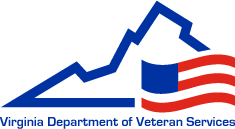Virginia is home to more veterans than most states. We must lead in caring, too.
Source: Catherine Wilson and Martha Mead, Virginia Wounded Warrior Program
Published by Daily Press
Despite the generosity of Americans to support our military men and women returning from the wars in Iraq and Afghanistan, veterans and their families continue to tell us that they still have trouble understanding how to access the myriad federal, state and local services available to them. Veterans returning home with the sounds, sights and smells of combat still haunting their thoughts may be turning to alcohol, prescription medications or unfortunately suicide to quell the constant battles they continue to fight.
A soon to be released Virginia Tech study reveals that Virginia veterans want more “coordinated information” on how to access their hard-earned benefits and healthcare services. Veterans, particularly those who live in rural areas, indicate that in addition to the services available from the Veterans Administration, they would like to get their medical care from community providers who have been trained to understand how to treat the unique needs that are the result of military service, combat, multiple deployments, constant alert and the other demands of today’s active-duty military.
Members of the National Guard and Reserves have experienced higher rates of deployment and higher rates of multiple deployments during the Iraq and Afghanistan conflicts than during any other war in our nation’s history. The Virginia Tech research supports the fact that these historically high rates of multiple deployments result in greater health, financial, employment and personal strain on these service members.
This, in turn, generates greater stress on spouses, children and other family members who are struggling at home to keep the family together and well.
The Virginia Tech research also finds that a major barrier to seeking help is the stigma and risk of pursuing care because of the fear of losing one’s job or being labeled as mentally ill.
The Virginia Wounded Warrior Program was established by the governor and General Assembly in 2008 to help provide a human connection to services and to assist veterans and their families to overcome the barriers that prevent them from seeking treatment, particularly for combat stress and traumatic brain injuries that have become known as the “signature” injuries of Iraq and Afghanistan. We commissioned the Virginia Tech study to evaluate how best to serve and facilitate support for veterans and their families in Virginia.
We know that Virginia is home to more than 800,000 veterans. According to the VA, we have more than 260,000 military service members who have served since 2001 and we have the highest ratio of Iraq and Afghanistan war veterans of any state. We also have the highest number of female veterans.
If you know of a service member, veteran of any era of service or family member who is struggling with the effects of operational stress and the health issues that result, take action today and contact the Virginia Wounded Warrior Program of the Virginia Department of Veterans Services. Call toll free, 1-877-285-1299 or go to http://www.VirginiaforVeterans.com/woundedwarrior.
We must strive to be the nation’s leader in ensuring that those who have served us are taken care of when they return home to the commonwealth.
Community voices
This guest editorial is by Catherine A. Wilson, executive director of Virginia’s Wounded Warrior Program, with Martha J. Mead, the program’s special projects coordinator. The program provides support for veterans of any era and members of the National Guard and Reserves who have stress-related and traumatic brain injuries resulting from their service.


